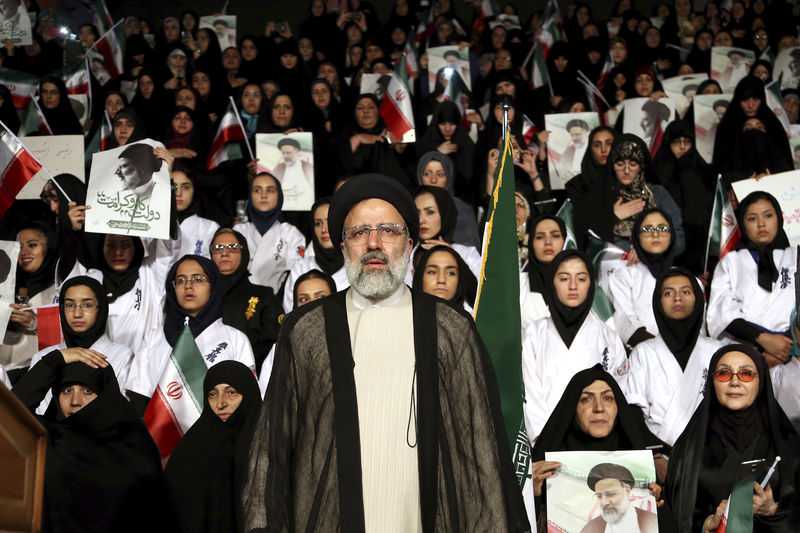Hard-line cleric picked to lead Iran judiciary
09 March, 2019

A hard-line cleric once thought to be a possible successor to Iran’s supreme leader was appointed head of the Islamic Republic’s judiciary Thursday, sparking concern from rights activists over his involvement in the execution of thousands in the 1980s.
Ebrahim Raisi was named to the post in a decree by Supreme Leader Ayatollah Ali Khamenei, the semi-official Fars news agency reported.
Raisi’s selection comes after he was trounced by incumbent Hassan Rouhani in the country’s 2017 presidential election. That loss, as well as other concerns, now have some analysts suggesting the move takes him out of the running to become the next supreme leader to replace Khamenei, who will turn 80 this July.
Speculation that Raisi could be named to the post also had sparked criticism from the United States, which under President Donald Trump has withdrawn from Tehran’s nuclear deal with world powers.
Raisi, “involved in mass executions of political prisoners, was chosen to lead #Iran’s judiciary. What a disgrace!” Robert Palladino, a deputy State Department spokesman, wrote on Twitter on Tuesday. “The regime makes a mockery of the legal process by allowing unfair trials and inhumane prison conditions. Iranians deserve better!”
Rumors began months ago that Khamenei would appoint Raisi, 58. He will replace Sadegh Amoli Larijani, a conservative cleric who is the brother of Iran’s parliamentary speaker Ali Larijani. Khamenei had appointed Larijani as the head of the country’s Expediency Council, which mediates differences between the country’s Parliament and its Guardian Council, Iran’s constitutional watchdog.
Khamenei has praised Raisi, a former Iranian attorney general, in the past.
In 2016, Khamenei appointed Raisi to run the Imam Reza charity foundation, which manages a vast conglomerate of businesses and endowments in Iran. It is one of many bonyads, or charitable foundations, fueled by donations or assets seized after Iran’s 1979 Islamic Revolution. These foundations offer no public accounting of their spending and answer only to Iran’s supreme leader. The Imam Reza charity, known as “Astan-e Quds-e Razavi” in Farsi, is believed to be one of the biggest in the country. Analysts estimate its worth at tens of billions of dollars as it owns almost half the land in Mashhad, Iran’s second-largest city.
At Raisi’s appointment to the foundation in 2016, Khamenei called him a “trustworthy person with high-profile experience.” That led to analyst speculation that Khamenei could be grooming Raisi as a possible candidate to be Iran’s third-ever supreme leader, a Shiite cleric who has final say on all state matters and serves as the country’s commander-in-chief.
